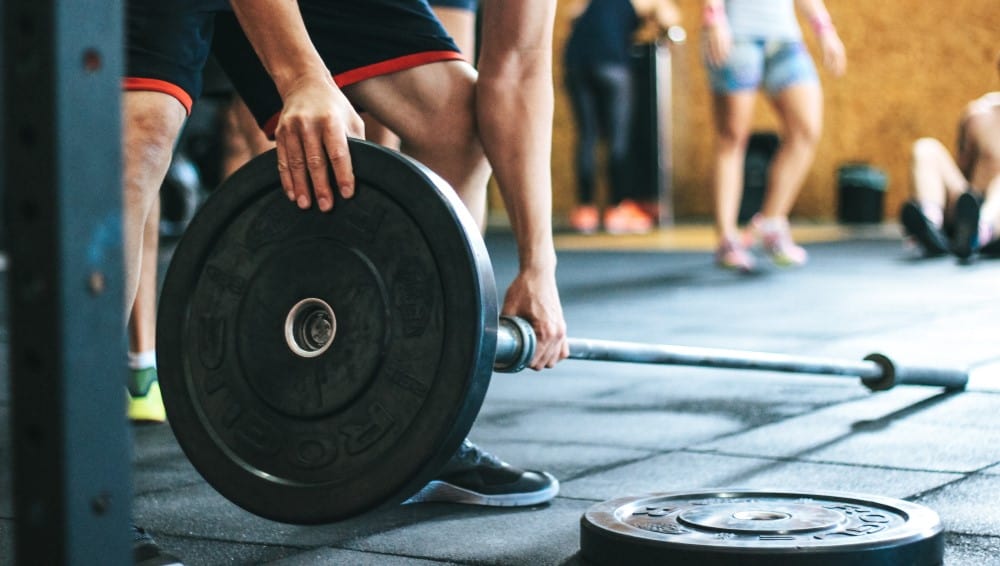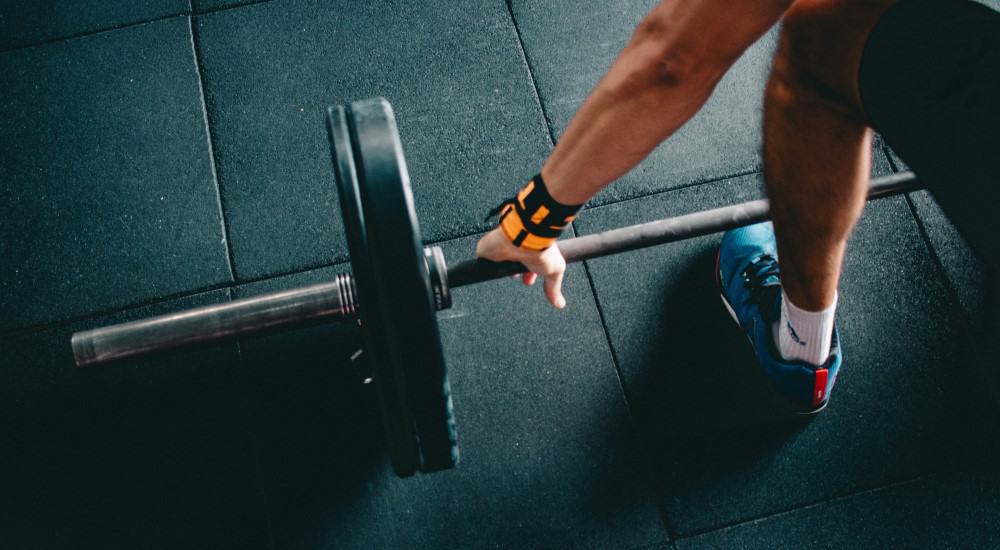L-Citrulline efficiently increases the concentration of L-arginine in the blood and thus increases the NO values, the muscle perfusion, and the pump during training. At least that’s what they say.
But is L-Citrulline a good Pre-workout?

In combination with the malate, citrulline increases maximum and explosive power and reduces fatigue during exercise, allowing more reps in later movements at a higher volume.
Arginine supplements and NO boosters are very popular in the gym because they increase muscle pumping and increase performance. Citrulline (usually called citrulline malate) falls into this category and is more effective than arginine.
The nonessential amino acid L-citrulline is found in the diet most concentrated in the watermelon and serves the body as a precursor of the amino acid L-arginine. Arginine, in turn, is a precursor of the messenger substance nitric oxide (NO), which relaxes the blood vessel walls, increases blood flow and thereby lowers blood pressure.
Studies on L-Citrulline as Pre-Workout
Citrulline is a better NO booster than arginine.
Pure arginine is subject to limited bioavailability, as it is degraded in the intestine by the enzyme arginase to urea and ornithine, whereby less arginine arrives in the bloodstream and thus can contribute less to NO synthesis.
Since there is a medical interest in increased availability of arginine, inter alia, to better control increased blood pressure, studies with L-citrulline have instead been performed for these purposes. With much better results.
Citrulline passes through the intestine fairly unscathed and is not degraded like arginine in the liver. Instead, citrulline in the kidneys is converted to arginine and raises arginine blood levels quite efficiently. The citrulline also suppresses the Arginase enzyme and thereby increases the arginine uptake. Thus, the combined administration of arginine and citrulline results in a fairly high arginine blood level.
Citrulline & cardiovascular system
Increased NO synthesis is detected by measuring the substance nitrate (NOx). A single dose of 3g citrulline in one study increased NO production 10-fold in healthy, young study participants and in older people with heart disease. Nevertheless, the researchers were unable to detect any influence on the perfusion in the forearm. An immediate effect is therefore not expected in citrulline, despite the rapid increase in NO.
In contrast, in other studies, the NOx increase averaged 20-35% when citrulline was used at a dose of 6 g / day and for more than one week.
In addition, citrulline was shown to be more effective at prolonged use with already elevated blood pressure. In a small study of overweight women suffering from hypertension, citrulline reduced systolic blood pressure by 7 mmHg and diastolic by 6 mmHg. The women took 6 g of citrulline daily for 8 weeks, divided into two doses. There was no change in the control group.
In another study with patients suffering from heart failure, taking only 3 g of citrulline for several weeks reduced systolic blood pressure by 11 mmHg and diastolic by 8 mmHg. The participants also improved their endurance performance on the treadmill. The left ventricular ejection fraction was increased, which means that the ventricle was able to pump more blood volume through citrulline supplementation, which is especially important in heart failure.

Similarly, watermelon extracts rich in L-citrulline are similar. One such extract containing 6g of citrulline was taken daily by obese women with high blood pressure in a double-blind, placebo-controlled study. After 6 weeks, their systolic aortic pressure and arterial stiffness sank, that is their blood vessels reacted more elastically to the blood flow.
In another study with healthy middle-aged men, citrulline did not reduce blood pressure, but it did improve arterial stiffness.
Citrulline generally does not lower blood pressure in the resting phase in healthy people. In doing so, it reduces blood pressure in this group during exercise and cold stress. You should therefore not expect a fall in blood pressure due to a citrulline intake, unless during a stressful situation in which the blood pressure rises sharply.
Citrulline for Athletes
Citrulline is present in supplements either in pure form or as citrulline malate.
Malate is part of the ATP-forming cycle and contributes to ATP regeneration. Malat not only improves citrulline absorption but also contributes to energy production. Citrulline malate increases ATP production by 30% during a workout, reduces fatigue, and boosts energy regeneration of phosphocreatine energy after exercise by 20%.
So it makes perfect sense to prefer citrulline malate, just remember to adjust the dose accordingly. As a rule, approximately twice the amount of citrulline malate must be taken in order to get the same amount of citrulline.
Let’s have a closer look at the corresponding studies on the ergogenic citrulline effect. A distinction must be made here between an immediate effect after the first intake of citrulline or the effect resulting from a longer intake (from 1 week).
Citrulline Malate as a Training Booster?
Pure citrulline does not seem to be a good workout booster and is unlikely to have an acute performance-enhancing effect. The ingestion of citrulline 1-2 h before an exhaustive test unit on the treadmill neither improved the blood circulation nor did it increase the VO2max value, ie the maximum oxygen uptake and thus also the endurance or fatigue limit.
A dose of 6g of citrulline before a test of endurance performance did not reduce lactate levels in a smaller study and therefore had no effect on muscle acidity. But it eased the sore muscles one day after the training session.
On the other hand, trials with citrulline malate show better results and there are some studies with strength athletes. In a double-blind, placebo-controlled study, more mature, trained athletes took 8 g of citrulline malate before the performance test. They increased the number of reps during pull-ups (4 reps more than with placebo), the reverse pull-up (5 reps more) and the push-ups (8 reps more). There were no changes in blood pressure.
In another study by the same researchers, the performance improvement in leg exercises was examined. Participants increased their repetition rate by 9% for exercises such as squats, leg presses and leg extensions by taking 8 g of citrulline malate once before training.
An interesting reference to the operation of citrulline malate provided by a study in which a total of 8 sets of bench press in succession had to be performed: the effect of citrulline malate was barely detectable in the first two sets, but rose from the third set, so that in the eighth sentence nearly 53% more repetitions were achieved than without the supplement. This applies to all supplemented athletes in the study, there were no non-responders.
As many as 90% of citrulline malate-supplemented athletes had significantly less muscle pain (40% less) at 24 h and 48 h hours later than those on placebo alone. The participants took 8 g of citrulline malate before training.
We can conclude that citrulline malate is particularly useful in case of increased exercise volume, but not only because it generally reduces the fatigue that increases with the progress of the workout
A recent study from 2016 with professional female tennis players achieved significant results with 8 g of citrulline malate. The athletes had an overall increased grip strength with the supplement, while their anaerobic performance improved both in the form of increased maximum and explosive power. The explosive force is a measure of the time needed to exert the maximum force. Both properties are of high interest to fitness athletes.
Citrulline as a permanent supplement
Studies with longer citrulline use have been rather rare and have been done mainly with endurance athletes. Long-term use of 6 g / day citrulline did not increase VO2max, which is the maximum oxygen uptake that is an important factor in determining endurance performance. However, in the same study, the researchers found improved muscle oxygenation, with citrulline-supplemented athletes performing more work at the same time during endurance tests.
The fact that citrulline improves muscle oxygenation without simultaneously increasing VO2 suggests optimized oxygenation and distribution resulting from increased blood flow.
In combination with full-body vibration training, an 8-week dose of citrulline increased muscle mass more efficiently than training alone. However, it does not seem to directly affect muscle protein syntheses, such as BCAAs or whey protein.
Citrulline in combination with creatine, beta-alanine, and glutathione can be a great option.
Although citrulline seems to promote the regeneration of phosphocreatine, it does not increase the creatine levels in dimensions such as taking creatine itself. Therefore, it makes sense to combine citrulline occasionally to a regimen of creatine for muscle building. It is sufficient to take the citrulline malate only before the actual training, while the creatine is used throughout.
The same goes for beta-alanine, which reduces the acidity of the muscle by boosting the peptide carnosine, allowing for more repetitions during strenuous exercises lasting over 60 seconds. All three supplements (creatine, beta-alanine, and citrulline) work in different ways and are the ideal combination to get more performance.
The body’s own antioxidant glutathione can also be taken as a supplement and, in combination with citrulline, increases the NO values and thus also the blood circulation of the muscles, above all, it lasts a little longer. But this combination is not necessary.
Conclusion: Citrulline as Pre-Workout
Citrulline secures a place on the podium next to the few really efficient supplements like creatine or beta-alanine.
Many common products (boosters) contain citrulline concentrations that are too low (for acute) effects (e.g. 3-4g or less). This may have positive effects on chronic intake, but if you want to play it safe and get the full benefit of citrulline, you should aim for 6-8g per day – taken over days and weeks!
Overall, the facts currently speak more for a short-term citrulline malate supplementation before the actual training. Other supplements are more efficient if taken continuously.
Cheers,
Sam




